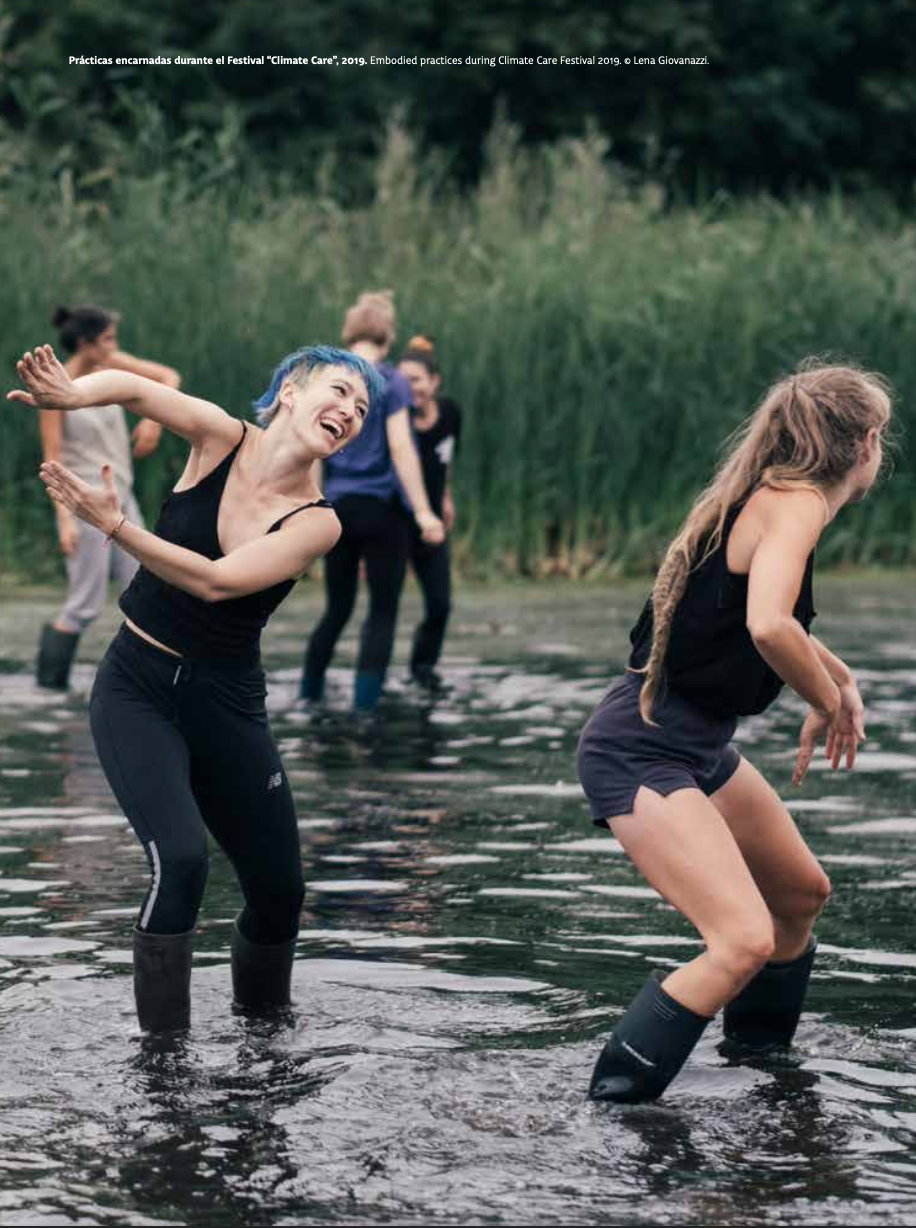FLOATING UNIVERSITY AND CLIMATE CARE: THEORY AND PRACTICE ON A “NATURECULTURE” LEARNING SITE
Article Sidebar

Keywords:
Main Article Content
Abstract
A soft and caring infrastructure collaborates with the existing environment and its agents. Such is the case of the Floating University in Berlin. On the site of the Floating University, a diverse range of animals, plants, and algae have taken root and given birth to a unique landscape: a man-made environment reclaimed by nature where polluted water coexists with the relatively new presence of the university, forming a ‘natureculture’ or a ‘third landscape’. This text develops the case of the Floating University and ‘Climate Care’, a festival engaged with theory and practice at the intersection of climate challenges, ethics of care, and environmental humanities. Emerging from weathering the conditions of its site, the program is a result of in-depth cohabitation with the constructed water infrastructure, its human culture, and its multispecies overlays. This non-natural-natural site
is complex and evocative, and acting as its custodians brings many questions we hope to address: How do we hold space and sites for the complexity of our moment How do we seek, create, and implement planetary alliances on a locally complex site
Article Details
Materia Arquitectura provides immediate and free access to all the content of this online edition, published simultaneously with the print edition.
Materia Arquitectura does not charge authors for any concept.
All contents of this electronic edition are distributed under the Creative Commons license of "Attribución-shareAlike 4.0 Internacional" (CC-BY-SA).
The rights of the published texts and images belong to their authors, who grant Materia Arquitectura the license for their use. The management of the permits and the authorization of the publication of the images (or of any material) that contains copyright and its consequent rights of reproduction in this publication is the sole responsibility of the authors of the articles.
As long as they mention their origin, the authors are free to distribute their articles by other means. Any total or partial reproduction of the material must mention its origin.